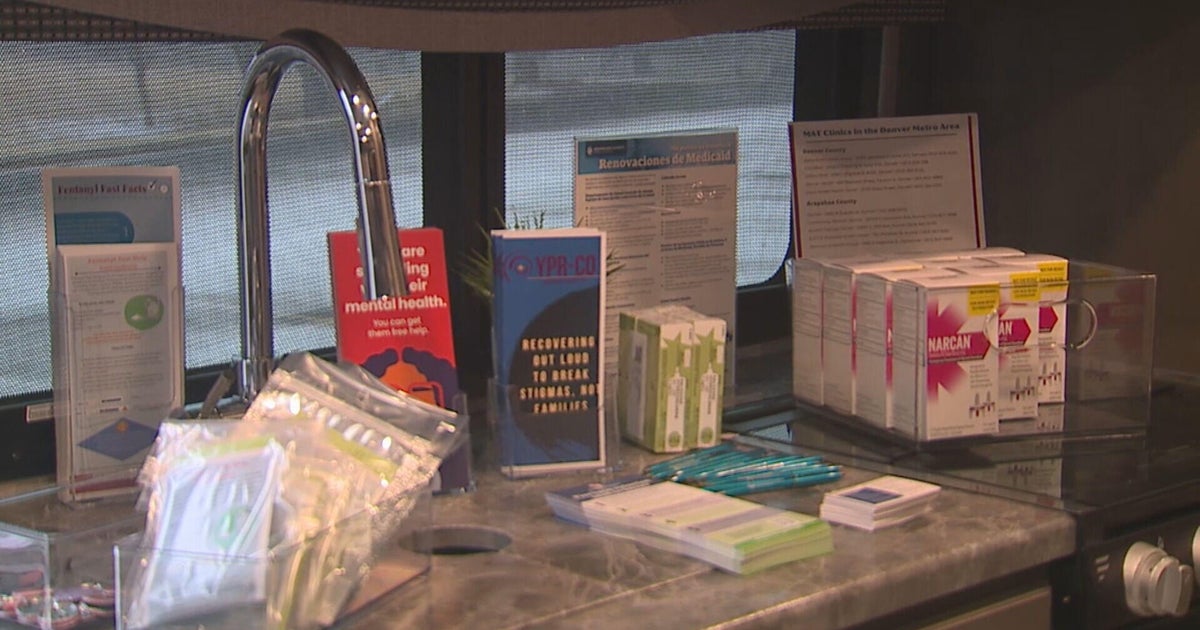Companies face a mask surplus as sales evaporate following new CDC guidance
Face masks, last year's must-have accessory and once hard-to-come-by pandemic requirement, have gone out of style. Just ask Maya Gorgoni, a Manhattan designer and apparel business owner who masked-up no less a celebrity than Meghan, Duchess of Sussex. The designer is now stuck with thousands of cloth face masks — and few buyers — since the Centers for Disease Control and Prevention eased its mask guidance for Americans who are fully vaccinated against COVID-19.
"The last two days have been pretty quiet," Gorgoni, co-founder of Royal Jelly Harlem, told CBS MoneyWatch.
Gorgoni said she has roughly 5,000 masks in stock, in different patterns. She plans on discounting the $15 masks and is already including them, free, with purchases of her clothing and other accessories.
"We recently got a few huge orders to customize masks that I already had in stock, so that's helping — because I'm otherwise a little bit nervous about getting stuck with so many masks," Gorgoni said.
She also hopes to donate 500 or so masks to help stop the spread of COVID-19 in India: "I'm interested in donating to a legit organization — I just don't know where to send them."
The CDC last week said fully vaccinated individuals no longer need to wear masks in most settings, causing already waning mask sales to plummet, according to fashion designers and other manufacturers who retooled their factories to produce different varieties of face coverings to help slow the spread of the coronavirus last year.
"Mask sales have dissipated to almost nothing," Los Angeles Apparel founder Dov Charney told CBS MoneyWatch. "We did really well with it and our workers were proud to be a part of it — and we are now focusing on getting back to our ordinary business."
"Multimillion dollar moment"
Charney and other apparel makers last March heeded government calls for local businesses to produce face masks and other personal protective equipment amid a nationwide medical supply shortage at the height of the COVID-19 outbreak in the U.S.
When the South-Central L.A.-based company's operation was at its peak, more than 1,000 Los Angeles Apparel employees were churning out hundreds of thousands of masks per week, according to Charney.
There was no shortage of buyers for the washable cotton face masks selling for $30 per 3-pack.
"Sales of masks were enormous. We were making them even before the government was telling people to wear them, and when the government U-turned, we had them in stock. It became a multimillion dollar moment in a space of days because we were at the right place, right time," Charney said.
Mask sales have waned over time, according to Charney, in part because the cloth masks he sells are washable and customers are encouraged to reuse them.
The company still produces a small number of masks for its employees to wear, but has dramatically scaled back production. Like Gorgoni, the company gives away masks with clothing orders in an effort to clear some of its stock.
"We expected this day to come"
Chiropractor Brian Wolin, who dove into the mask market when not even hospitals were able to secure sufficient supplies of medical-grade PPEr, has also noted a recent dip in orders.
His company, Protective Health Gear, which makes disposable NIOSH-approved N95 respirator masks, started tapering production last week after the CDC's surprise announcement easing requirements slowed new orders of masks.
"We certainly felt it, and feel it, and we kind of expected this day to come," Wolin said.
Today, Protective Health Gear produces roughly 25,000 masks a day at its New Jersey headquarters, compared to more than 100,000 masks a day when demand was highest.
Eventually, if demand doesn't pick up — sales have dropped by about half since the beginning of the year, according to Wolin — he plans to halt production altogether.
"If we don't get a government order or someone to buy our inventory, we will stop production eventually for sure. We'll stop producing until we have an order to produce for," Wolin said.
"We met our goal"
Automaker Ford used its engineering prowess to launch a significant PPE manufacturing effort called "Project Apollo" early on in the coronavirus pandemic. Under the mission, Ford produced 120 million masks for donation as well as to supply its own workers.
A Ford spokesman said the company is now "winding down" the effort, producing only "a small amount" of masks for internal use, as Ford brings workers back to its facilities to focus on building cars.
"We completed our donation of 120 million masks," a Ford spokesperson said. "We met our goal."



